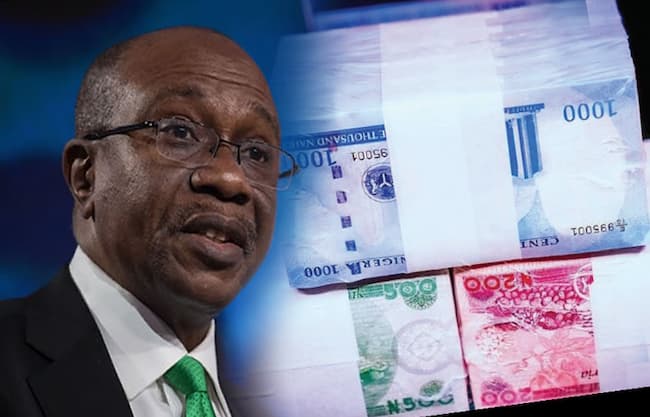The House of Representatives (Reps) Adhoc Committee on the redesign of three naira notes has rejected the Central Bank of Nigeria’s (CBN) 10-day extension for the swap of old ₦200, ₦500, and ₦1,000 bank notes.
The Chairman of the Committee and Majority Leader of the House, Alhassan Ado Doguwa, said in a statement on Sunday that the green chamber will proceed and sign an arrest warrant to compel the CBN Governor, Godwin Emefiele, to appear before the committee.
According to him, the new naira redesign policy has the potential to derail the upcoming 2023 general elections.
According to BizWatch Nigeria, Emefiele stated that Buhari has granted permission for the deadline to be extended until February 10, 2023.
The House of Representatives committee chaired by Doguwa immediately rejected the extension, insisting that the CBN comply with sections 20 sub 3, 4, and 5 of the CBN Act.
“The 10-day extension for the exchange of the old naira notes is not the solution: We as a legislative committee with a constitutional mandate of the house, would only accept clear compliance with section 20 sub 3, 4, and 5 of the CBN act and nothing more,” the lawmaker, Doguwa said.
“Nigeria as a developing economy and a nascent democracy must respect the principle of the rule of law. And the House would go ahead to sign arrest warrant to compel the CBN Governor to appear before the adhoc committee.”
Doguwa stated that the committee would continue to work under his chairmanship until the demands of Nigerians were met in accordance with the laws of the land.
He described the extension as a mere political ploy to deceive Nigerians and worsen their economic and social well-being, insisting that the CBN governor appear in court or face arrest on the basis of legislative writs signed earlier by Speaker Femi Gbajabiamila.
He also stated that the policy has the potential to derail the upcoming general elections.
“Generally, security agencies and their operations, particularly at the state level, are funded through cash advances and direct table payments of allowances to operatives during elections,” he explained.













